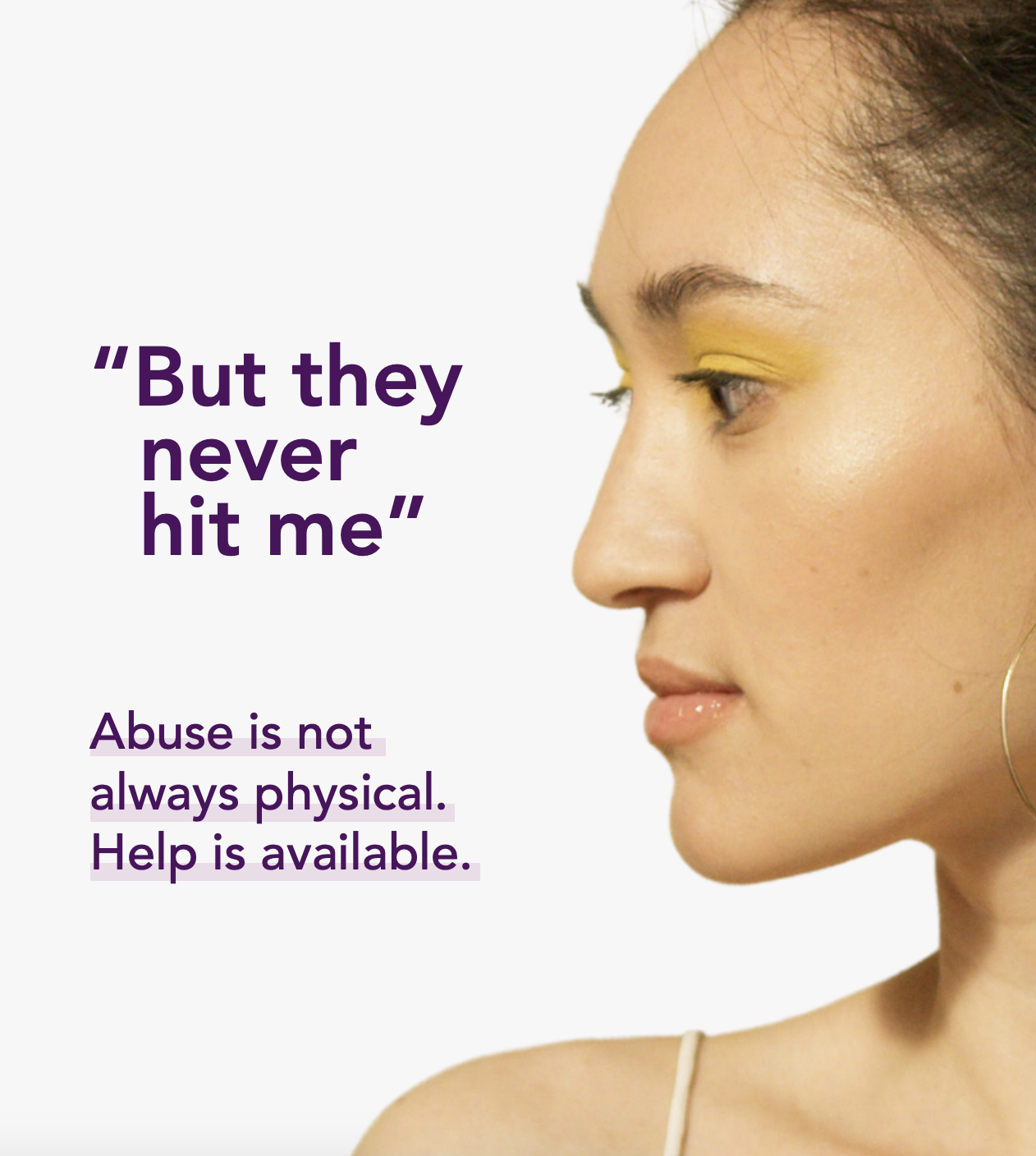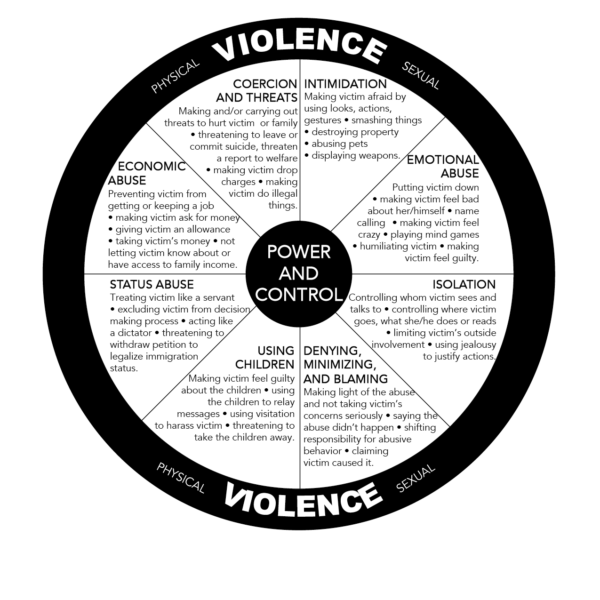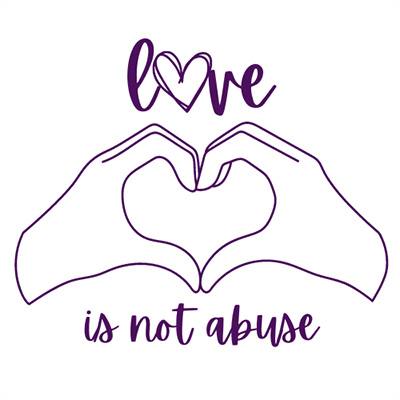Sometimes people experiencing domestic abuse, dating abuse, sexual assault, and human trafficking may not be aware of it. It can happen to anyone without regard to age, gender, sexual orientation, race, or socio-economic status. Below you will find some resources intended to help you reflect on whether or not your relationship is healthy for you.
Dating/Domestic Abuse
Human Trafficking
Sexual Assault
What is...
Domestic abuse is a pattern of behaviors used to maintain power and control over another person. However, the relationship does not need to be romantic, sexual, or intimate for it to be domestic abuse. Elder abuse, sibling abuse, and child abuse may fall into this category as well.
Dating abuse is a pattern of behaviors used to maintain power and control over another person that occurs within a dating relationship. This type of abuse can occur whether you met your partner three weeks ago or have been with them for numerous years. Abuse can happen regardless of the amount of time you've been together.
Human trafficking involves the use of force, fraud, or coercion to obtain some type of labor or commercial sex act. For instance, if a person forces their partner to perform physical labor or forces them to engage in selling sex (prostitution or pornography, that is considered human trafficking.
Sexual assault refers to sexual contact or behavior that occurs without explicit consent of the person experiencing it.
Dating/Domestic Abuse
Since 1 in 4 women, 1 in 7 men, and 1 in 3 teenagers have experienced abuse, it is very likely that someone you know is currently experiencing dating or domestic abuse. However, just because it’s common, does not mean that it is normal. No one should make you feel unsafe in your relationship.
Signs of an unhealthy relationship:
-
- Intense romantic interest and passion immediately
- Insisting that you must text or call constantly
- Attempting to isolate you from loved ones
- Excessively tracking your location
- Being overly critical of you
- Never taking accountability for being wrong
- Extreme jealousy of other people
Types of Abuse
There is a common misconception that domestic violence is only physical. However, there are numerous types of abuse that do not include anything physical. If you are concerned about your relationship and need support, the MFJC is always here.

Human Trafficking
At this very moment, more than 27 million people across the world are experiencing human trafficking. These are people of all ages, backgrounds, and nationalities that have been exploited by another person. While human trafficking has been dramatized in movies, it’s not a mysterious villain committing these atrocities – sometimes it’s a person’s own romantic partner.
There is an inherent link between domestic abuse and human trafficking because the dynamics used to establish and maintain power and control are very similar. According to the Human Trafficking Legal Center, it is not uncommon for a trafficked person's romantic partner, spouse, or casual lover to be their trafficker. In fact, romantic interest or sexual attraction is a tool that traffickers may use to manipulate and control the trafficked person. They make promises of love, marriage, and whirlwind romances until to coerce the victim into commercial sex, forced labor, or involuntary servitude.
For instance, an abusive partner might say, ‘we need money to pay this bill, I know a quick way to make that money’ and force their partner to perform sex acts for money. It has become so common that the Department of Justice’s Human Trafficking Task Force expressly lists domestic violence as a crime that may overlap with human trafficking. The grooming and method that traffickers get their victims often mimics that of intimate partner relationships.
For instance, both traffickers and abusive partners may intentionally impregnate their victim, use children to control their victim’s behaviors, isolate them from everyone, control their finances, and threaten to expose personal information, such as sexuality or immigration status, to maintain power and control.
Sexual Assault
Sexual assault refers to sexual contact or behavior that occurs without explicit consent of the person experiencing it. Forms of sexual abuse (such as assault and rape) are used to intimidate, control and demean a person experiencing domestic abuse. According to the U.S. Department of Justice, "women who are sexually abused by intimate partners (or romantic partners) report more risk factors for intimate partner homicides than non-sexually abused women."
However, women are not the only gender that experiences sexual abuse. Men, transgender, and gender non-conforming people may all experience sexual abuse as well.
As noted by Helping Survivors, "intimate partner sexual violence is often an extension of verbal and physical abuse. Victims of intimate partner sexual violence are forced to live with the perpetrator and face high risks of repeat encounters." Some people experiencing sexual abuse may not even realize it because they are married and believe that having sex is their duty to the relationship.



